 A legal dispute involving a 69-year-old Miami heart surgeon has revealed that he has has been suspended from the staff at Cedars Medical Center while the hospital investigates 24 of his cases, which include ''numerous patient deaths,'' court filings show.
A legal dispute involving a 69-year-old Miami heart surgeon has revealed that he has has been suspended from the staff at Cedars Medical Center while the hospital investigates 24 of his cases, which include ''numerous patient deaths,'' court filings show.Other documents say the surgeon, Alex Zakharia, suffers from memory lapses that have been worsening, and he's been charged in a criminal case with fraud and perjury for allegedly exaggerating his surgical experience.
Zakharia's lawyers insist he has done nothing wrong, and the doctor has challenged his suspension. He continues to work in at least four South Florida hospitals. One week last month, he performed 21 procedures, according to court documents.
Doctors' problems are usually closely held secrets in the healthcare industry and can persist for years before becoming public with any disciplinary action.
But in this case, Zakharia's difficulties have been disclosed by the doctor's own lawyers in documents filed in Detroit and Miami-Dade County courts.
Zakharia refused to discuss any specifics and threatened to sue anyone who wrote about his situation.
In court papers, the surgeon and his lawyers have said there are no problems. The memory lapses don't affect his work, Zakharia told his doctors. He has pleaded not guilty to the fraud charges, and he has sued Cedars to be put back on staff. The lawsuit says hospital executives suspended him ``abruptly without . . . sufficient inquiry to confirm the credibility of the allegations.''
The four hospitals where he works are Mount Sinai Medical Center in Miami Beach, Select Specialty Hospital in Miami, North Shore Medical Center in North Miami-Dade and Larkin Community Hospital. Officials for Sinai, North Shore and Larkin said they didn't have any information about performance issues involving Zakharia. Select did not respond to phone calls.
According to his résumé, Zakharia received his medical degree from the American University in Beirut in 1962, followed by surgical residencies at Baylor, Case Western, the Mayo Clinic and the University of Miami. He has practiced in Miami since 1982.
START OF TROUBLES
Zakharia's present troubles stem from a 2003 case in which he testified for a man who sued the Veteran's Administration for malpractice. In November 2006, the U.S. Attorney's Office in Detroit indicted him on charges of fraud and false declaration concerning his surgical experience.
According to the indictment, he stated in a deposition that he had wide experience in coronary artery bypass graft surgeries, but records at Cedars and Miami Heart Institute didn't back up the testimony. Zakharia told The Miami Herald at the time that the lawyers had misunderstood him and that his background wasn't relevant to the malpractice case.
That same month, Cedars suspended his surgical privileges, saying in a letter to the surgeon that it had ''credible evidence'' that his surgical care in one case was ``below the standard of care.''
Several weeks later, another Cedars letter to the doctor said the medical executive committee recommended revoking his hospital privileges because of his ''clinical performance or competence'' in two other cases. Zakharia was offered a hearing to give his side.
Lourdes Garrido, spokeswoman for the HCA hospital chain, Cedars' owner, said the hospital couldn't comment because the matter is under litigation.
Zakharia sued Cedars in Miami-Dade Circuit Court to stop the hearing, alleging it was ''tainted'' because of the hospital's prejudice against him. The hearing, which has been frequently postponed, is now set for next month.
Cedars responded that it needed to ''protect the life and well-being of patients'' and that the hospital had summarily suspended him in November ``after several of his patients died.''
The court filing said that in December the Medical Executive Committee had received ``credible information regarding his clinical performance or competence concerning the deaths of two patients.''
Later, the Cedars staff said it would present 24 cases at his hearing. ''The additional 22 cases, which cover a period of 18 months, include numerous patient deaths,'' the court filing said.
Cedars said the surgeon's actions were motivated by ''ill will and animus,'' because Cedars had provided information to a federal grand jury that ended up indicting Zakharia for perjury.
NO COMMENT
Cedars lawyer Stephen Bronis said he couldn't comment because the case involves a ``confidential and privileged peer review.''
Zakharia said if an article were published about his situation, ''I am having the biggest lawsuit The Herald has ever seen. You have demeaned me'' by calling and asking questions of hospitals and others, he said. ``I am suing for $5 million. You tell your boss that.''
Zakharia's Detroit and Miami attorneys did not respond to five calls over a two-day period.
As the Cedars case grinds on, Zakharia's Detroit lawyer has filed motions seeking to get the federal perjury case moved to Miami because he was too ill to make the trip. In support, his lawyer submitted letters from doctors who have been treating him.
In one, Guillermo Blanco, a North Miami Beach neurologist, stated Zakharia suffered ''an episode of dizziness'' during one flight to Detroit for a hearing, and a magnetic resonance imaging test revealed ''two possible TIAs.'' A TIA is a transient ischemic attack, which the National Institute of Neurological Disorders and Stroke describes as a ``stroke that lasts only a few minutes.''
From Blanco's letter: 'Dr. Zakharia today complains of progressive difficulties with his memory. He has difficulty focusing on things and although he performs surgery without any difficulties, he has noted that he forgets names of patients and he has to ask his secretary frequently about it. Again he admitted not being as `sharp' as he use[d] to be. This has been going on for several months and probably longer than a year but has been worse lately.''
Blanco recommended Zakharia not fly ''because of a high risk of a stroke,'' and he recommended the surgeon take Aricept. The drug's website says it is the only drug approved ``for all stages of Alzheimer's disease.''
Carl Eisdorfer, director of UM's Center on Aging, said Aricept ''has really one specific use -- it's used in patients with Alzheimer's disease,'' but he couldn't say why Blanco prescribed it.
Blanco said he couldn't talk about a patient's medical problems.
ADVERSE EFFECTS
Another doctor treating Zakharia, Rafael A. Soto, said the surgeon had suffered during two Detroit flights, one of which ''caused heaviness in his speech. . . . While his condition does not prevent him from doing his normal professional duties, he is strongly advised not to fly.'' Soto did not respond to a phone call seeking comment.
Florida Board of Medicine records show no disciplinary actions against the surgeon. A spokeswoman said any existing investigations concerning Zakharia would not be public until the board ruled.
Zakharia remains busy. In one week last month, he did nine procedures at Mount Sinai, 10 at Select and one each at North Shore and at Larkin.
Cardiologist William O'Neill, executive dean for clinical affairs at the University of Miami's medical school, reviewed the list of procedures for The Miami Herald and said many were relatively simple -- inserting tubes into veins -- but three (one at Sinai and two at Select) were more complicated tracheotomies -- cutting open the throat to insert a ventilator tube.
While he doesn't have firsthand knowledge of the Zakharia case, each of the elements raises issues, O'Neill said.
``I would be very concerned to find out the reason he was suspended by another hospital. I would be incredibly concerned about the accusation of perjury, and I would be even more concerned about the memory issues.
``Before I let him continue at a hospital I was associated with, I'd want to know from the physical standpoint that he's mentally competent.''
Sidney M. Wolfe, a physician with the consumer group Public Citizen in Washington, said the Zakharia case is rare. Typically, physicians' problems are handled very quietly -- if they are handled at all.
Without the court cases, ''he presumably would be treated'' for his memory problems, Wolfe said, ``and no one would know the difference.''







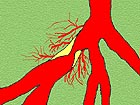
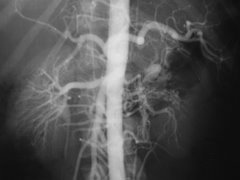


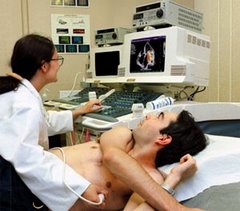
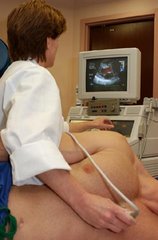
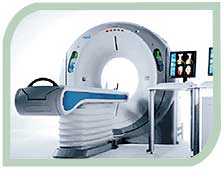
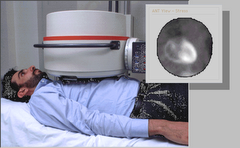
No comments:
Post a Comment